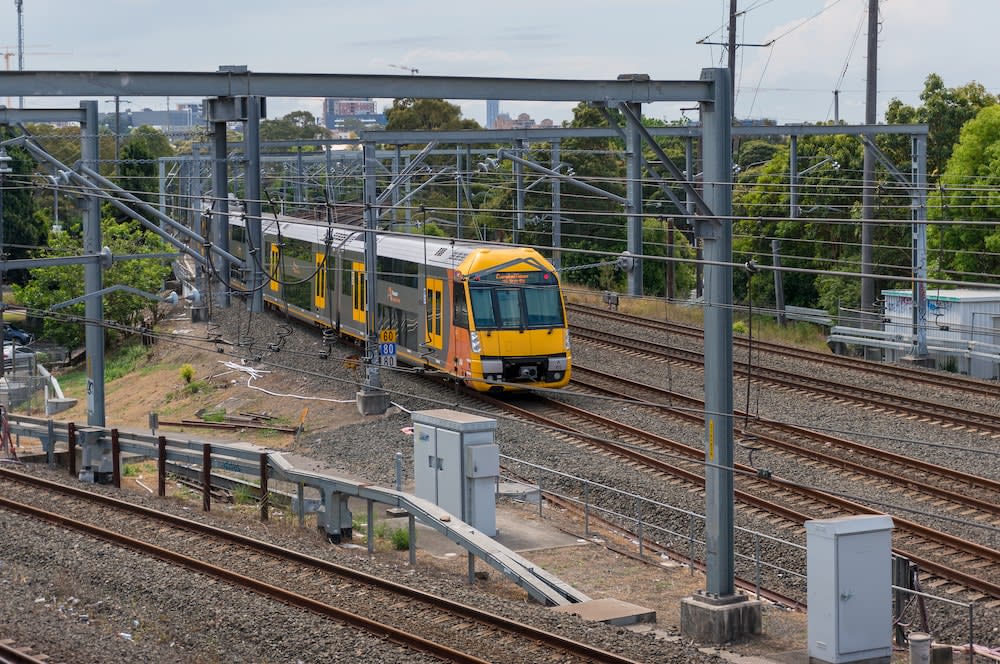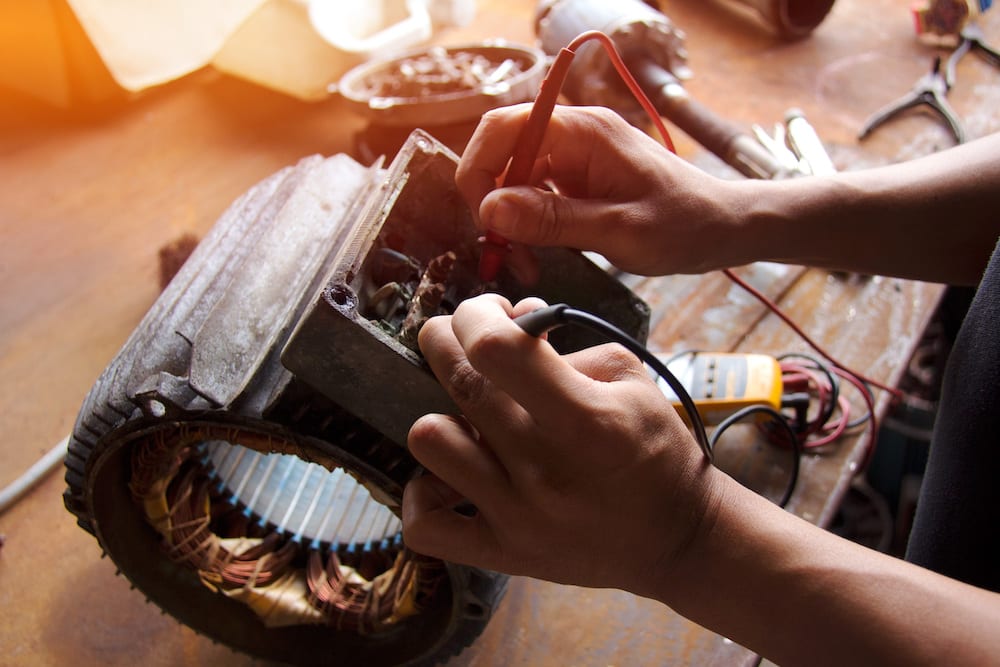- Published 22 Feb 2024
- Last Modified 6 Mar 2024
- 5 min
The Role of Electric Motors in Sustainable Railway Systems
Explore the role of electric motors in railways, their efficiency, and innovations like regenerative braking in enhancing sustainable rail transport.

In an era where sustainable transportation is more than a trend but a necessity, railways have emerged as pivotal players. In fact, the rail industry in Australia has launched a sustainability guide known as the "Path to Net Zero," which outlines the industry's commitment to sustainability and its path towards achieving net-zero emissions. At the heart of these modern, eco-friendly rail systems lies a crucial component – the electric motor. It's a technology reshaping the future of trains, making them not only more efficient but also more environmentally friendly.
Understanding how does an electric motors work, and their ability to operate efficiently and cleanly, positions them as a more sustainable choice in rail transport, aligning with global efforts towards environmental conservation. This blog will explore the transformative role electric motors play in advancing railway sustainability, a vital aspect for professionals in the manufacturing, mechanical, engineering, and electrical sectors in Australia.

Comparing Electric and Diesel: Environmental Impacts
The choice of propulsion systems in the rail industry has significant environmental implications, especially when comparing electric motors with diesel engines. Electric motors, which are increasingly being used in electric trains, present a substantial environmental advantage. Their operation results in a marked reduction of greenhouse gases and pollutants – a crucial factor in mitigating climate change. This decrease in emissions contributes significantly to environmental preservation. Moreover, the use of electric motors in railway systems helps enhance the quality of life in urban settings, where rail transport is often a major contributor to local air quality.
Energy Efficiency of Electric Motors
The energy efficiency of electric motors stands out as a significant benefit in railway systems. Electric trains are known for their lower energy consumption compared to traditional diesel engines. This efficiency is not just about reduced energy usage; it also translates into a smaller carbon footprint and lower operational costs, making electric motors a sustainable and economically sound choice for the rail industry. The way electric motors convert electrical energy into mechanical energy is a key factor in this efficiency. Their ability to do so more effectively than diesel engines is what makes them both cost-effective and environmentally friendly in the long term.
Noise Pollution Reduction with Electric Motors
When addressing noise pollution in urban settings, electric motors present a compelling solution, particularly within the rail industry. Known for their quieter operation compared to traditional diesel engines, electric motors significantly reduce the ambient noise often associated with rail transport. This reduction is especially beneficial in densely populated urban areas, where railway lines often intersect residential and commercial zones. The adoption of electric motors in trains contributes to a more peaceful environment, enhancing the quality of life for communities near these transport routes.
Integration with Renewable Energy Sources
Enhancing the sustainability of electric railway systems is increasingly achievable through their integration with renewable energy sources, such as wind and solar power. This strategic alignment significantly bolsters the eco-friendly credentials of rail transport, enabling trains to operate on cleaner, more sustainable energy. This shift not only amplifies the environmental benefits inherent to electric motors but also positions the rail industry as a pivotal contributor to the broader adoption and advancement of renewable energy technologies. The successful integration of these energy sources with the efficient operation of electric motors marks a key step forward in realising a greener, more sustainable future in rail transport.
Regenerative Braking Systems in Electric Trains
Modern electric trains in the rail industry are increasingly adopting regenerative braking systems, a technological advancement that significantly boosts their energy efficiency. This innovative system works by capturing the kinetic energy generated during braking and converting it into electrical energy. This reclaimed energy can either be reused within the train system or fed back into the power grid, effectively reducing the overall energy demand of rail transport.
The Future is Electric: Embracing Sustainable Rail Mobility

Electric motors are more than just components in railway systems; they are catalysts for a sustainable future in transport. As the rail industry continues to grow and evolve, the importance of these motors and the technologies around them will only become more pronounced, driving us towards a cleaner, more sustainable world.
RS Australia, as a leading supplier in this sector, is committed to providing various types of electric motors, ensuring the highest standards of quality and efficiency in every component.
ABB
ABB stands at the forefront of industrial technology innovation, providing solutions that cater to various sectors. Known for their robust and efficient electric motors, ABB's products are a testament to their commitment to advancing technology and enhancing operational efficiency across diverse industries.
Siemens
As a global technology giant, Siemens offers an extensive array of products and services that span multiple industries. Their electric motors are particularly notable for their reliability and performance, underpinning Siemens' reputation as a key player in driving technological progress.
Related links
- Advancing Railway Safety with High-Quality Cabling Solutions
- Variable Speed Electric Motors in HVAC Systems for Energy Efficiency
- Achieving Environmental Management in Sustainable Mining
- Understanding Conveyor Parts and Maintenance to Boost Mining...
- The Impact of Servo Motors on Automated Drilling Equipment in Mining
- Enhancing Train Operations in Australia: DC Contactors and Relays
- Ensuring Personal Protection in Industrial Environments
- The Evolution of Servo Motors in Robotic Applications